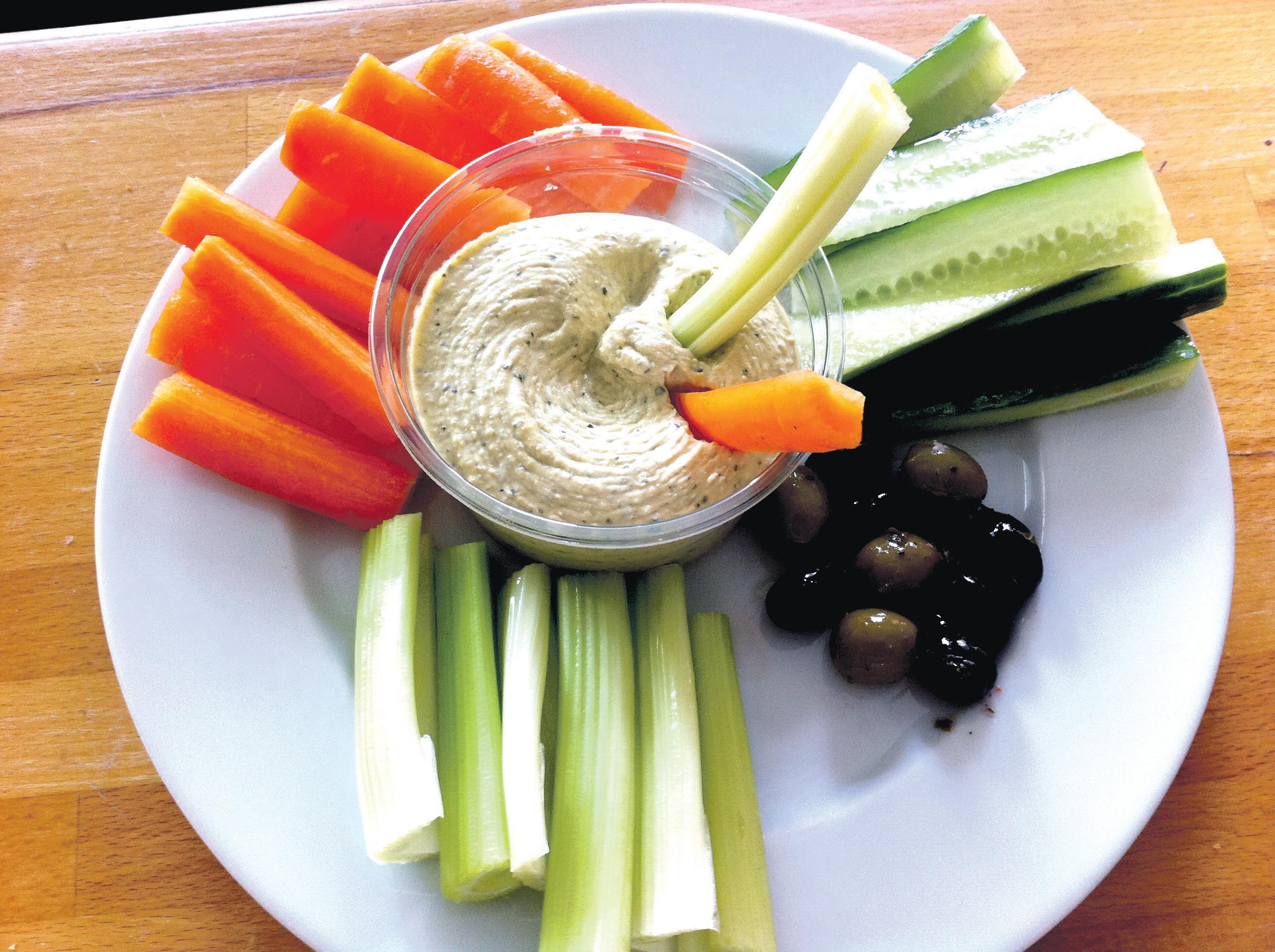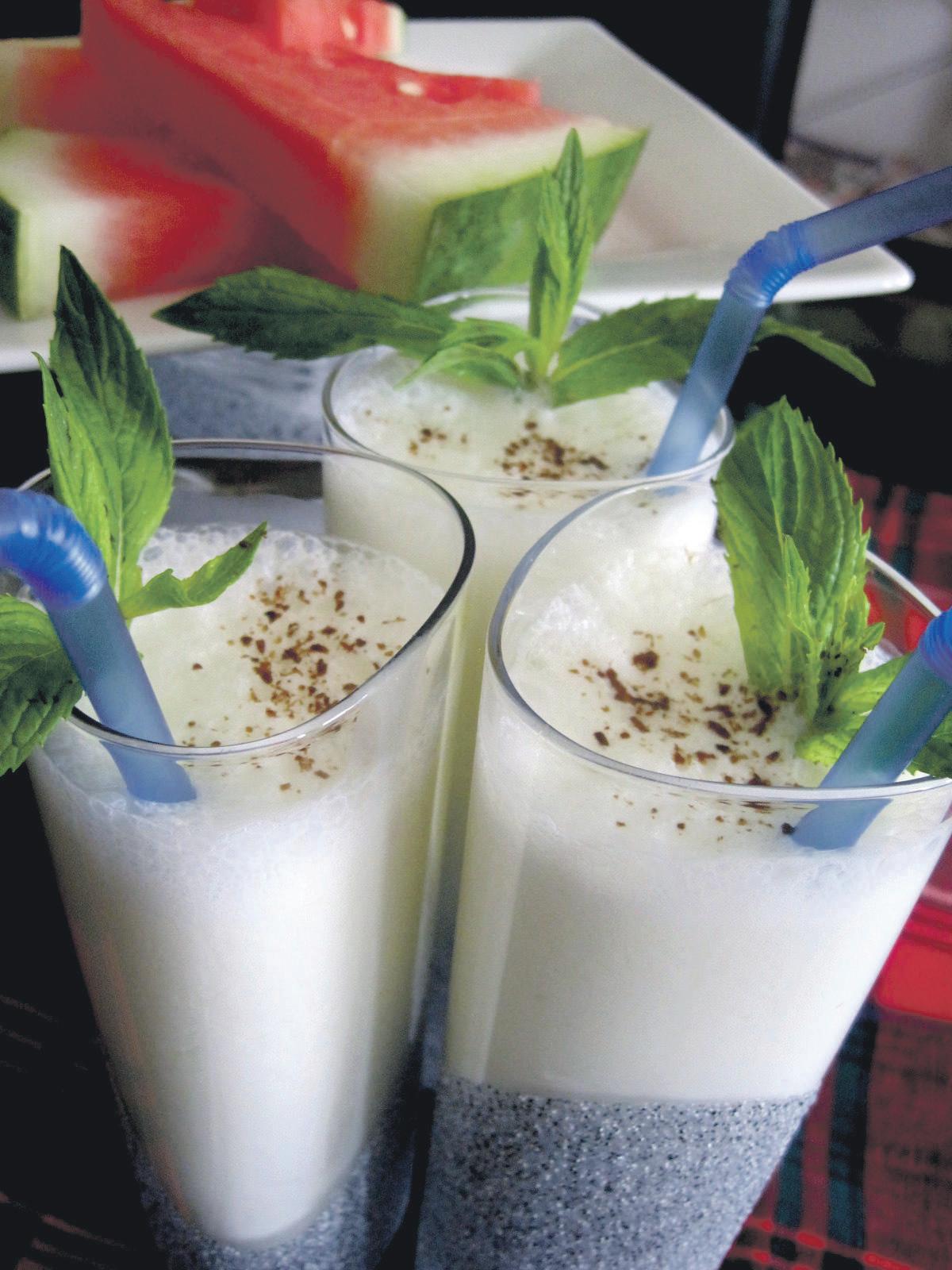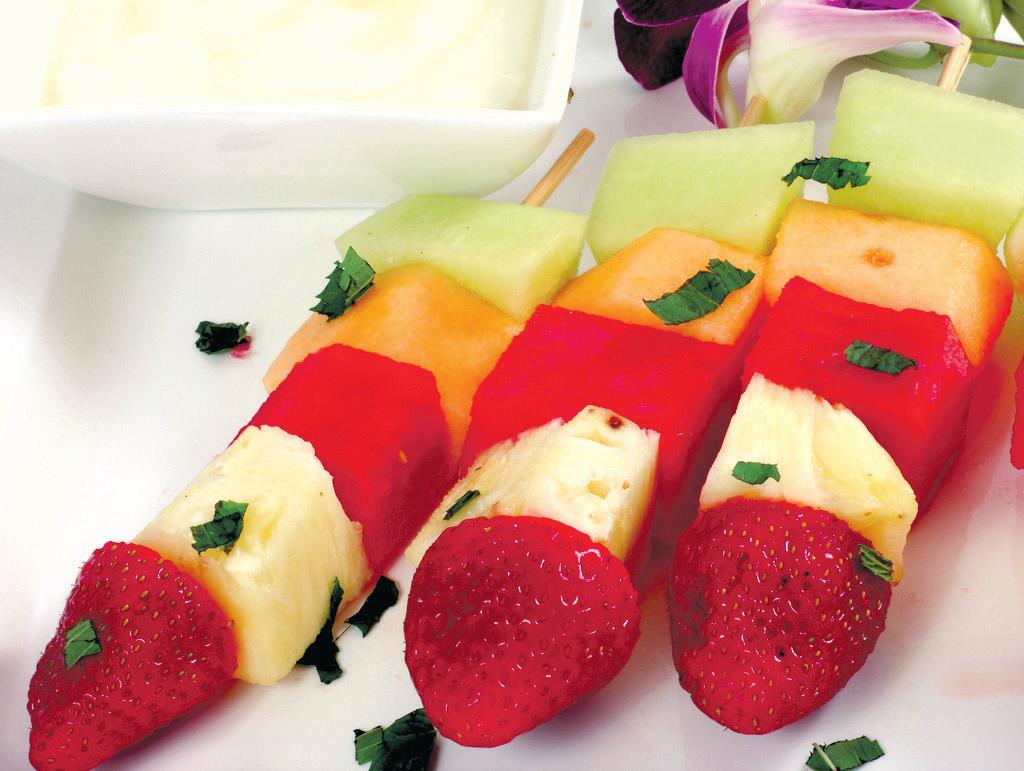
3 minute read
Sensible snacking
from 2012-08 Sydney (1)
by Indian Link
It’s hard to stick to three meals a day, so healthy snacks are a solution
BY GEETA KHURANA

Snacking is not always bad, if you choose the right foods on which to snack. In fact, snacks can help to fill the gap between meals and prevent you from having larger portions at meal times.
Adolescents, especially those who are very active in sports and burn more calories, tend to feel more hungry and are not satisfied with their regular three meals, so they snack a lot more. After school activities, other interests and long hours spent studying can all involve extra snacking. Therefore, it is very important to make sure that the snacks consumed are good quality, wholesome and filling which will provide the extra energy and nutrients we need. It is also important that we know how to choose healthy snacks when eating away from home. Here are a few examples of ‘power snacks’.
Dairy
• Milkshakes and smoothies made with fat reduced milk and by adding a small amount of flavorings or fruits are an excellent and filling snack for the afternoon.

• Reduced fat custard, low fat yoghurt or raitas made with low fat yoghurt are also excellent snacks, as well as help in fulfilling our requirement of 3 serves of dairy every day.
• Small serves of low fat ice creams without the addition of too many high calorie toppings can also be good desserts, provided we stick to the portion sizes.
Nuts and dried fruits
• Raw or dry roasted unsalted nuts and seeds such as almonds, Brazil nuts, cashews, chestnuts, hazelnuts, macadamias, pecans, pine nuts, pistachios and walnuts are excellent snacks that are energy dense and good sources of PUFA and MUFA (poly and mono unsaturated fatty acids).

• Dried fruit such as dates, apricots, figs, prunes, and sultanas are good as desserts, as well as good sources of fibre. Packets of nuts and dried fruits can also be kept in school bags or handbags as a reserve snack, as these have a better shelf life than other snacks. (Know your school’s nut policy, though).
Fruit and vegetables
• Cucumbers, tomatoes, lettuce, and avocado can be used as toppings on biscuits. Carrots and celery sticks can be used with low fat dips.
• Fruits can be versatile as these can be eaten as whole fruits or added to milkshakes, smoothies, yoghurt, raita and custard. Fruit platters or cut fruit on skewers are also healthy options. But try to avoid fruit juices and have whole fruit instead.

Breads and cereals
• Wholegrain crackers or biscuits topped with tomatoes, cucumbers, lettuce, or avocados and low fat cheese are filling snacks.
• Plain unsalted popcorn without the addition of butter can be another healthy option.
• Raisin or cinnamon toast or banana bread, if shared with a friend over a cup of tea or coffee, can take care of your cravings for cakes and doughnuts.
• Go for wholegrain bars instead of chocolate cookies.
• Also try baked tortilla chips with salsa instead of sour cream.
• Microwave papads instead of frying, as snacks.
• Half a cup of high fibre breakfast cereal is also a healthy snack.
Lentils and beans
• Legumes such as soy, red kidney beans and chana are all low GI, rich in proteins and contain fibre as well as phytochemicals.
• Salads made with sprouts or chana chaat with lots of salad veggies is a very filling evening snack, and also can be used as a substitute to papdi chaat fried Indian snacks.
• A can of baked beans or baked beans on a slice of whole grain toast or crackers can be quite filling.
Soups
• A hot bowl of soup that is nutritious, comforting and filling can be an excellent snack.
• Soup is an excellent way to add healthy beans, vegetables, legumes, grains and meat, fish and chicken to your diet, and also an inexpensive way to add proteins, carbohydrates, vitamins, and minerals to your daily diet.
• Avoid processed, canned or commercial soups as these may be very high in sodium and carbohydrates. They are also more expensive than homemade soups.
Drinks
Water is the best drink but you can have nimbu pani, lassi or jal jeera
(avoid adding a lot of salt in these). Restrain yourself from too many fruit juices, cordials, or fizzy drinks.
But as with everything, moderation is the key. A snack should not substitute a meal, neither should it be the size of a meal.
TiPS For SMar T SNacKiNg
• Snacks should not replace a meal.
• Keep healthy snacks available to avoid looking for the wrong foods. Also keep healthy snacks handy at work.
• Keep a variety of foods available with you to avoid boredom.
• Don’t skip meals, because this increases the tendency to nibble on snacks during day, which can be a problem if those snacks are junk foods.
• Avoid snacking while watching TV, working on the computer or doing some other work. You tend to overeat.
• Parents should be good role models for their teenagers and friends by eating nutritious snacks themselves and by making these snacks readily available.
• Avoid high calorie snacks which should only be eaten as treat foods.










